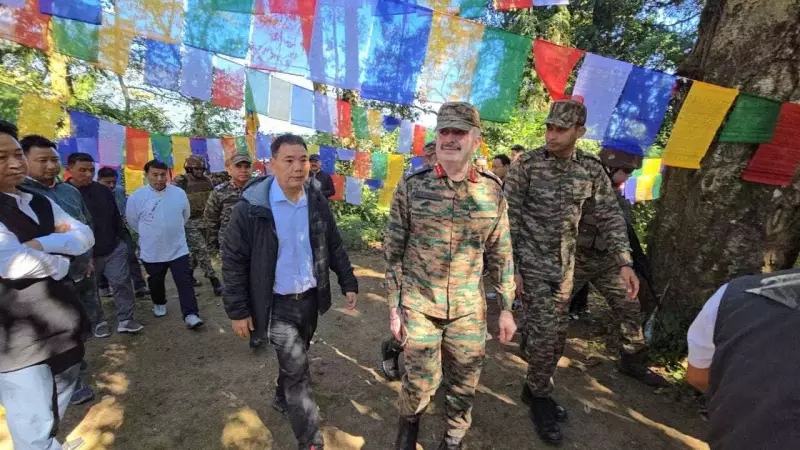
Arunachal Pays Tribute to 1962 War Heroes
The courageous soldiers who made the ultimate sacrifice during the historic 1962 Battle of Kepang La were remembered with deep reverence on Monday as Arunachal Pradesh observed Kepang La Day. The solemn ceremony took place at Gelling, a strategically significant village located in the Upper Siang district that holds the distinction of being the first Indian settlement along the sensitive India-China border.
Political Leader Honors Fallen Soldiers
Speaking at the event organized by the Spear Corps, Tuting-Yingkiong MLA Alo Libang delivered heartfelt tributes to the brave military personnel who laid down their lives for the nation. The political leader, who also serves as an advisor to the Chief Minister, praised the extraordinary courage and valour displayed by these soldiers, emphasizing that their supreme sacrifice continues to inspire generations of Indians.
Libang provided historical context, recalling how Chinese troops had entered Indian territory through the Kepang La Pass during the Sino-India War. During this intense military engagement, at least 11 Indian soldiers achieved martyrdom while defending the nation's sovereignty against foreign aggression.
Strategic Importance and Development Challenges
The MLA highlighted the dual significance of the Kepang La region, noting its rich historical heritage alongside its contemporary strategic importance. He revealed that the area once served as a vital route for barter trade between communities. Historical evidence suggests that several tribal communities, including the Adis, Galos, and Misings, migrated through this mountain pass into their present locations in India.
Despite its historical and strategic value, Libang expressed concern about the region's development deficit. He pointed out that Kepang La still lacks basic road connectivity and essential infrastructure, severely limiting access to the area. The MLA emphasized that the region became largely isolated from the rest of the country following the 1962 Chinese military aggression, a situation that persists to this day.
Libang strongly advocated for developing robust tourism facilities near the mountain pass, noting the area's immense potential for cultural and adventure tourism. He stressed that improving road networks, transportation links, mobile connectivity, and tourism infrastructure is crucial not only for economic development but also for enhancing strategic mobility along the border regions.
The political leader also commended the ongoing dedication of Indian Army and Indo-Tibetan Border Police (ITBP) personnel currently stationed at the pass, acknowledging their tireless efforts in guarding the nation's frontiers under challenging conditions.





